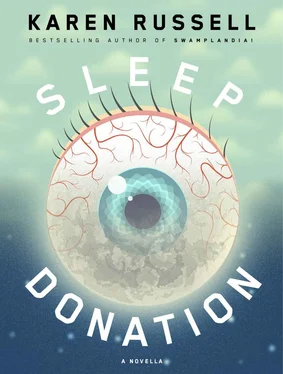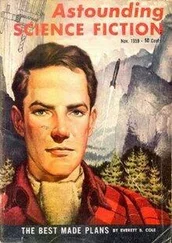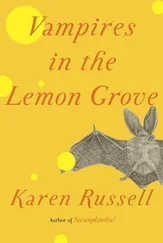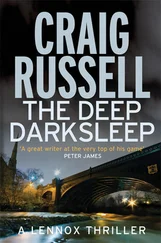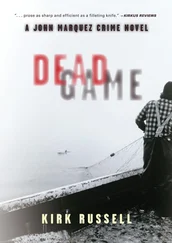“She won’t enter REM-sleep for another ninety minutes,” he tells them.
Mrs. Harkonnen’s blue eyes are shining-wet.
Mr. Harkonnen says, “There ought to be some way to arm them, you know. Send them back into this asshole’s nightmare with a handgun, some protection. It’s not fair.”
“It’s not fair,” agrees Dr. Glasheen, with the worn-smooth voice of someone whose expectations have all been filed away by the nightly emery of his hospital duties.
In the last bed, a woman has somehow managed to Houdini out of the elastic beige restraints and her green paper gown. Now she’s lying naked on top of the sheets, snoring lightly. She’s fallen asleep on her back with her pale feet crossed at the ankles. A fine sweat glistens all over her body, so that she looks like a melting icicle.
Four a.m., in the morning after Ward Seven.
Can’t sleep. Can’t sink into sleep.
My diet of zeros doesn’t seem to be working anymore.
Something else to hate you for, Donor Y.
I want to learn Baby A’s name.
This desire has been growing in me for days now, spiking with the Donor Y crisis, and tonight I feel crazed with it —actually feverish. Donors under the age of eighteen are assigned a letter at random, an “Alpha-Nym,” by our system. Most parents slip up at some point, blurt out their child’s full name. Not the Harkonnens. “Baby A,” they say smoothly, tucking her true identity into this blanket. Mrs. Harkonnen may well have told me her daughter’s name at our first meeting in the grocery store parking lot, but I didn’t know to pay attention back then.
As crazy as it sounds, I keep feeling that if I knew her true name, I could protect her better. I’ve heard strangers refer to “Baby A” as if she is some inorganic compound, a designer sleep drug. All night, people dial the hotline and beg me to get them wait-listed for the “Baby A cure.” Anyone in America who has a bad dream calls in, which means the phones never stop ringing. I go hoarse shouting down their doubts: No, I say, the helmet is safe, the tubes are sterilized. No, there is zero chance that you will contaminate the nation’s sleep supply, as he did. I promise my recruits that the Donor Y crisis has precipitated important policy changes, exhaustive safety rubrics for the Sleep Vans, expensive rounds of testing for nightmare-prions. All this public paranoia, I say, obscures the statistics: sleep donation has never been safer.
I don’t feel great about this, myself.
“How do we really know it’s safe for these people to donate?” I ask Jim and Rudy.
“We don’t know.”
“We can’t know.”
“That kind of epistemic murk is unavoidable, Edgewater.”
“Error, of course, is inevitable in some proportion of the cases.”
“We should describe the Donor Y tragedy as a freakish exception —which it is.”
“But it’s unrealistic to expect perfection from any human institution, Trish.”
“And from any human, period.”
“You know this.”
Boy, do I.
“We need to accept the world as it is, honey, not as we wish it to be,” Jim says, with a self-regarding puff on the “wish” and the “be.” Jim, I’m told, was a theater major at his Midwestern college. It means he underscores statements he actually does believe with some of the gayer accents.
But the need is quantifiable, uncontestable, and growing. People are drowning in light, fully awake. Children are propped on pillows, foaming soft sounds, singing a terrible music without words. We show videos of them at Drives, which get incredible sleep-yields. Moms who see it are ready to strip down in the nearest Sleep Van and give us five years of sleep on the spot. Some of the youngest orexins became insomniacs at age two; they have no memories of sleeping. Cued by some off-screen producer, these obliging, dying toddlers tell the large blank eye of the camera that they do not remember dreaming one night in their lives. Sleep: What is that?
These children live in a state of conscious terror, their school days exchanged for a noonlit netherworld. The Sleep Banks in Virginia, Florida, and Oregon are dried out. So I keep calling.
At a little after midnight, my voice gives out. The office trailer is equipped with a Murphy bed, what I think of as the whipped cream of beds, sprouting whitely from the wall. I pull it down.
“Working late?”
It’s just me and Jeremy in here now. Everyone else left hours ago.
Jeremy is our vacuously optimistic male secretary, who wears his hair in a carroty Afro and has dozens of chunky rings and ear cuffs and basically looks like a warlock in denim. He is a sweetheart. He does this job for no pay. He looks our recruits in their eyes when he thanks them, and piles wool blankets near the feet of the unconscious donors. When the nurses start a draw, he flinches for them. He donates sleep himself. Since the crisis began, Jeremy’s given half a year of his life: 4,392 hours —he grins proudly —which is far in excess of the legal limits; Rudy or Jim must be pulling strings for him to give so much, on a regular basis. Somebody needs to cut him off now. If you give beyond your sleep recharge threshold, push beyond the body’s natural limits, you’ll suffer the same consequences of sleep loss that afflict our insomniacs: cognitive impairment, physiological exhaustion, collapse. Jeremy stumbles around the trailer like a zombie some mornings, zoinked from a nine-hour draw.
I realize that he is hovering in front of the door, glancing back at me with a look that is totally unlike Jeremy, full of cagey apprehensiveness.
“You’re sleeping here?”
“I am.”
“Want a tuck-in?”
I do.
“Just let me brush my teeth,” I mumble.
He hits the lights.
It’s been years since I’ve done anything resembling ordinary socializing. For most of my colleagues at the Corps, this is so. We joke that the insomnia crisis has ruined our sex lives —we don’t have time to sleep with anyone recreationally, we’re too busy begging for sleep on the phone.
I listen under the sheets as Jeremy unzips his jeans near the door, wriggles out of them. Tiny woodsprite eyes litter the darkness, red and green —just the office electronics. No true darkness left in the modern world, some Luddites complain, fingering light pollution as the root of the new insomnia. Jeremy, a wiry shadow, lowers his full weight onto the Murphy, which whinnies on its springs; this Murphy bed turns out to be an expert ventriloquist of naked bodies. He gives me a nip on my bare neck. Then a consulting kiss, salty and quick. Jeremy’s hands, which are so warm, move under my clothing with a confidence that suggests he has been in touch with some of our colleagues about my amenability.
One thing the Corps has taught me is that my needs are quite common. I have become much more forthright about disclosing them. Shameless, I guess you could say, although I still have a vestige of girlhood modesty, and would prefer the word “honest.” And I am perfectly willing to make a gift-in-kind to my peers, when their complementary need arises. After-hours Jeremy turns out to be a very different quantity than the quiet male secretary who brings baby carrots for lunch and sneezes in sunlight. He, too, is suddenly quite candid about what his body requires from my body. This is our training. Most of our time is spent asking strangers for donations.
There are, of course, no consent forms to sign for this kind of transfusion. No nurses to adjust the fit or monitor its progress.
“Perhaps there is some equivocation on the part of the lady?” Jeremy says at one point, with a frightfully sad tact.
Читать дальше
